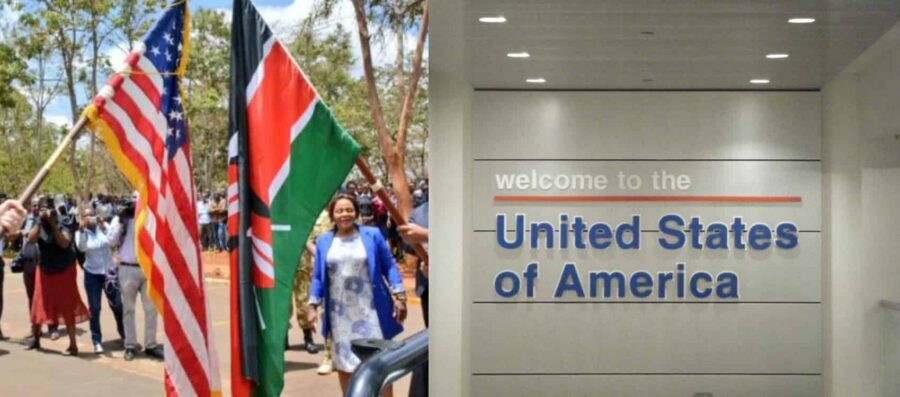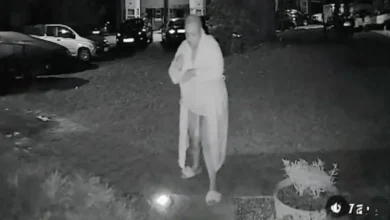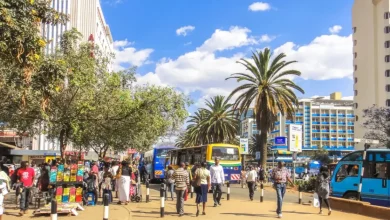TRAVEL ADVISORY: KENYA-LEVEL 3: RECONSIDER TRAVEL

TRAVEL ADVISORY: KENYA-LEVEL 3: RECONSIDER TRAVEL
Travel Advisory for U.S. Citizens
January 5, 2022
Travel Advisory: Kenya Level 3: Reconsider Travel
Reconsider travel to Kenya due to COVID-19. Exercise increased caution in Kenya due to crime, terrorism, health issues, and kidnapping. Some areas have increased risk. Read the entire Travel Advisory.
Read the Department of State’s COVID-19 page before you plan any international travel.
The Centers for Disease Control and Prevention (CDC) has issued a Level 3 Travel Health Notice for Kenya due to COVID-19, indicating a high level of COVID-19 in the country. Your risk of contracting COVID-19 and developing severe symptoms may be lower if you are fully vaccinated with an FDA authorized vaccine . Before planning any international travel, please review the CDC’s specific recommendations for vaccinated and unvaccinated travelers.
Visit the Embassy’s COVID-19 page for more information on COVID-19 and related restrictions and conditions in Kenya.
Do Not Travel to:
· Kenya-Somalia border and some coastal areas due to terrorism.
· Areas of Turkana County due to crime.
Reconsider Travel to:
· Nairobi neighborhoods of Eastleigh and Kibera at all times due to crime and kidnapping. Be especially careful when traveling after dark anywhere in Kenya due to crime.
Violent crime, such as armed carjacking, mugging, home invasion, and kidnapping, can occur at any time. Local police are willing but often lack the capability to respond effectively to serious criminal incidents and terrorist attacks. Emergency medical and fire service is also limited.
Terrorist attacks have occurred with little or no warning, targeting Kenyan and foreign government facilities, tourist locations, transportation hubs, hotels, resorts, markets/shopping malls, and places of worship. Terrorist acts have included armed assaults, suicide operations, bomb/grenade attacks, and kidnappings.
Due to risks to civil aviation operating in the vicinity of the Kenyan-Somali border, the Federal Aviation Administration (FAA) has issued a Notice to Airmen (NOTAM). For more information, U.S. citizens should consult Federal Aviation Administration’s Prohibitions, Restrictions and Notices .
Some schools and other facilities acting as cultural rehabilitation centers are operating in Kenya with inadequate or nonexistent licensing and oversight. Reports of minors and young adults being held in these facilities against their wills and physically abused are common.
Read the country information page .
If you decide to travel to Kenya:
· See the U.S. Embassy’s web page regarding COVID-19.
· Visit the CDC’s webpage on Travel and COVID-19 .
· Stay alert in locations frequented by Westerners.
· Do not physically resist any robbery attempt.
· Monitor local media for breaking events and be prepared to adjust your plans.
· Make contingency plans to leave the country in the event of an emergency. Review the Traveler’s Checklist .
· Always carry a copy of your U.S. passport and visa (if applicable). Keep original documents in a secure location.
· Enroll in the Smart Traveler Enrollment Program (STEP ) to receive security messages and make it easier to locate you in an emergency.
· Follow the Department of State on Facebook and Twitter .
· Review the Country Security Report for Kenya.
Kenya-Somalia Border Counties and Coastal Areas – Do Not Travel
Due to terrorism concerns, U.S. government personnel are prohibited from traveling to the Kenya-Somalia border counties and some coastal areas.
Kenya-Somalia Border Counties – Do Not Travel
· Mandera
· Wajir
· Garissa
Coastal Areas – Do Not Travel
· Tana River county
· Lamu county
· Areas of Kilifi County north of Malindi
Turkana County – Do Not Travel
· Road from Kainuk to Lodwar due to banditry
Visit our website for Travel to High-Risk Areas .
Nairobi neighborhoods of Eastleigh and Kibera – Reconsider Travel
Violent crime, such as armed carjacking, mugging, home invasion, and kidnapping, can occur at any time. Street crime can involve multiple armed assailants. Local police often lack the resources and training to respond effectively to serious criminal incidents.
Consider carefully whether to use the Likoni ferry in Mombasa due to safety concerns.
Visit our website for Travel to High-Risk Areas .





